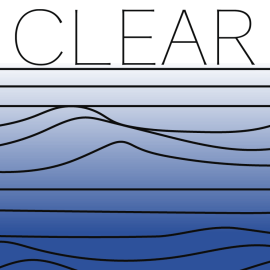- Full-time (35 hours/week) or part-time
- Can be remote or based at the St. John’s campus at Memorial University, St. John’s, NL
- 1 year, renewable
- Must be eligible to work in Canada
This is an ongoing project funded until 2028, where new or additional positions will often be available. Please check back regularly for updates. If this ad is still up, we’re still looking for people.
Update Fall 2025: We are currently open to researchers with experience conducting quantitative research, particularly in understanding the premises of common descriptive (i.e. central tendencies) and inferential (i.e. correlation analysis/coefficients) models.
We are looking for experienced researchers who are fluent in Indigenous approaches to quantitative methods. Experience can come from community research, graduate degrees, and/or research positions with a Nation, band, or non-governmental organization.
This position will join a larger collaborative project that seeks to address two areas that have remained separated for some time: Indigenous methodologies on one hand, and quantitative methodologies on the other. Drawing on our network of Indigenous scientists, demographers, and statisticians, the Research Associates will work closely with Dr. Max Liboiron (Michif/Red River Métis) to show how Indigenous researchers are using quantitative methods in ways that strengthen Indigenous ways of knowing and doing. In addition to strengthening relationships between Indigenous quantitative researchers from different Nations in different countries, the goal of the project is to create research and teaching modules.
Researchers will be joining an ongoing project, and will be part of CLEAR, an environmental monitoring lab based at Memorial University. We specialize in community-based monitoring, collective analysis, and Indigenous Data Sovereignty. The reearchers will also be part of the IndigeLab Network working group on Indigenizing Quantitative Methods. Formed in 2022, the working group is mainly Indigenous researchers in Canada and the United States with some allied non-Indigenous students from our labs. We have covered topics such as using our home languages to describe quantitative thought, the practice and theory of circular statistics, and most recently we support one another in ongoing research projects.
Activities
- Independent and collaborative research on case studies and specific mathematical, statistical, or other quantitative methods used by Indigenous researchers. The methods used to do this research will be based on the Researcher’s experience but can include: literature reviews, case study analysis, metadata analysis, descriptive and inferential statistics, interviews, and cartography.
- Co-writing texts for community use and peer-reviewed publication
- Co-creation of teaching materials at the undergraduate level. The medium for this will be based on the Researcher’s skills, but can include: written texts, audio presentations or podcasts, video, graphics/data visualization, and interactive media.
Requirements
- Able to legally work in Canada
- Fluency and experience in Indigenous research ethics
- Fluency and experience in Indigenous approaches to quantitative research (which may include but is not limited to: participatory statistics, traditions of numeracy, Indigenous Data Sovereignty, nayri kati, ethnomathematics, community-based analysis, Indigenous sciences, and making Inuit kititait or Michif akihtasowin)
- Ability to organize time well and work independently as well as part of a team
- Strong communication skills
Salary
Salary is based on experience and determined by Memorial University’s Human Resources review. Because we will accept a wide range of experiential backgrounds, the salary range is difficult to determine in advance. However, similar positions in the past have included both junior researchers ($24-28/hr, ~$48k/year) and more experienced researchers ($30-36/hr, ~$70k/year). Research travel and software are provided.
Flexibility
We can accommodate full-time or part-time employment, irregular schedules, and remote work. We can create a postdoc position if that is a better fit for Associates. We want to ensure the position can be feasible for a wide array of researchers and career paths.
There are two positions available.
To apply
We recommend looking at the type of work the CLEAR lab and the IndigeLab Network does, as well as reading the overall project description here before applying. You are also welcome to send an email in advance of applying.
Send the following to Max Liboiron at mliboiron@mun.ca:
- A letter of introduction
- A resume or CV
- An example of your previous research
